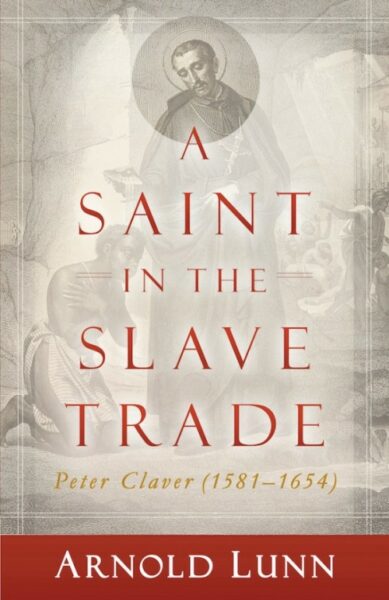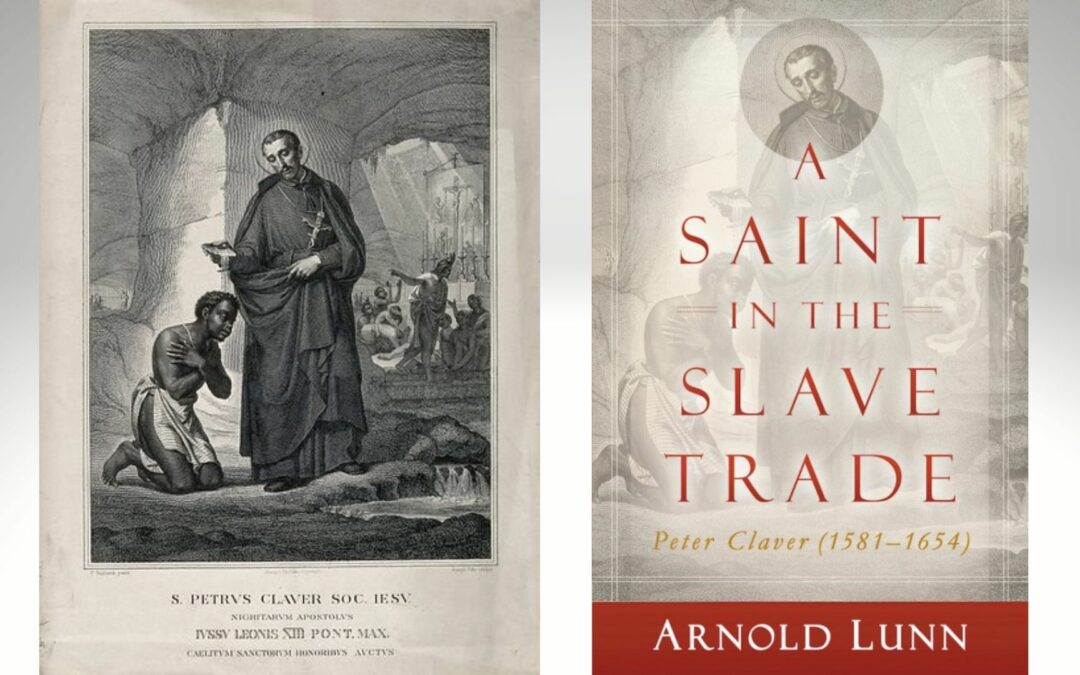Book Review: A Saint in the Slave Trade (Black Catholic History)
Introduction of Slavery to the New World
 One horrific consequence following the discovery of the New World was the emergence of the international slave trade in the 16th and 17th centuries.
One horrific consequence following the discovery of the New World was the emergence of the international slave trade in the 16th and 17th centuries.
European colonists recognized the immense productive potential held by the American continents. They laid claim to vast swaths of land, hoping to gain vast profits. They consistently found, however, that there was never enough labor available to work the lands they claimed. After various failed attempts to compel indigenous tribes to work, landowners turned to imported African slaves for sources of labor.
Catholic Response to Slavery
The role of Catholicism in the slave trade was checkered. On the one hand, Catholics can be proud that the popes consistently spoke out against slavery from its inception. Pope Paul III, upon hearing of Native Americans being put to forced labor, decreed in 1537 that “Indians and all other peoples—even though they are outside the faith—should not be deprived of their liberty… Rather they are to be able to use and enjoy this liberty and this ownership of property freely and licitly, and are not to be reduced to slavery.” (Paul III, Sublimus Deus).
The same pope also warned Catholics that they would be punished with excommunication for participating in slavery. Popes Gregory XIV (Cum Sicuti, 1591), Urban VIII (Commissum Nobis, 1639), and Benedict XIV (Immensa Pastorum, 1741) also condemned slavery and the slave trade, specifically threatening clergy who dared to support the evil institution. In the 1800s, Pope Gregory XVI strongly condemned racial slavery in his bull In Supremo Apostolatus. The pope’s vehement denunciation of racial slavery bears quoting:
“We, by apostolic authority, warn and strongly exhort in the Lord faithful Christians of every condition that no one in the future dare bother unjustly, despoil of their possessions, or reduce to slavery Indians, Blacks, or other such peoples… Nor are they to lend aid and favor to those who give themselves up to these practices, or exercise that inhuman traffic by which the Blacks, as if they were not humans but rather mere animals, having been brought into slavery in no matter what way, are, without any distinction and contrary to the rights of justice and humanity, bought, sold and sometimes given over to the hardest labor.”
There can be no question that the Church, as an institution, opposed the slave trade. However, on the other hand, as today, individual Catholics are not always keen on following the Church’s directives. The sad truth is that the popes would not have needed to issue so many censures of slavery if Catholics weren’t continually participating in it.
Despite the Church’s directives, slavery became an integral part of the economies of the Caribbean. If Catholics can be proud of the popes’ opposition to slavery, we must lament the poor example set by so many Catholics who ignored the Church’s censure in order to profit in human flesh.
A Saint in the Slave Trade
Thankfully, the Church did not lack for saintly individuals who worked among the slave markets of the New World to ease the burdens of the enslaved. One such individual was St. Peter Claver (1581-1654), the renowned Jesuit missionary who spent his life among the slave ships of Colombia, ministering to the slaves. Claver is the subject of a new(ish) book by Sophia Institute Press, A Saint in the Slave Trade by Arnold Lunn (2021).
Arnold Lunn was a 20th-century Catholic convert from atheism who wrote prolifically about the faith. His biography of Claver, originally published by Sheed and Ward in 1935, has reached a new audience with Sophia’s excellent new edition.
I found this book fascinating. Arnold Lunn (1888-1974) was a master narrator, and every page is a delight to read. He was one of those rare authors, like Chesterton or Belloc, who could weave philosophical and theological insights into his historical writings. Accordingly, A Saint Among Slaves is much more than a mere history of St. Peter Claver. We get a rich reflection on the meaning of sainthood. There are two chapters on the Church’s views on slavery going back to Roman times. The latter part of the book contains five wonderfully written essays on various topics such as sanctity, humanism, and pity. It is a book that nourishes the soul as well as fills the mind.
St. Peter Claver
I don’t want to detract too much from the meat of the text, which is the life of St. Peter Claver. Claver was an extraordinary figure. He was a man who not only carried deep compassion for the slaves he ministered to, but desired to share their sufferings himself. He considered himself servus servorum, “a slave of slaves,” and signed his name with the title “slave of slaves forever.”
The book describes, in vivid detail, Claver’s work on the slave ships as they docked at the wharves of Cartagena in Colombia. Claver would enter the crowded, filthy cabins to minister to the human cargo therein, bringing them food, water, clothing, or anything else they needed. He also visited the plantations where the slaves worked, making converts and ensuring that their Christian rights were upheld. It is estimated that during his life, he baptized and catechized 300,000 slaves.
Arnold Lunn’s book is an excellent narrative of the life of one of the greatest Catholic missionaries. In an era that is marred by the darkness of injustice, St. Peter Claver stands out as an example of what Christians are called to do in the face of injustice. I highly recommend Sophia Press’s A Saint in the Slave Trade. It will educate and inspire. Lunn’s wonderfully crafted work deserves a spot in the “saints’ lives” section of your bookshelf.
Additional Resources
If you want to learn more about this subject, I have a YouTube video about the papal declarations against slavery. You can also check out the books by John O’Kane Murray on the Spanish explorers, edited by yours truly. Each book tells the tale of a different Spanish adventurer, written by the 19th-century Catholic historian John O’Kane Murray, and contains an original introduction by myself. These books touch on many issues relating to slavery and Catholicism in the early years of European involvement in the New World.
NOTE: This article contains affiliate links.






